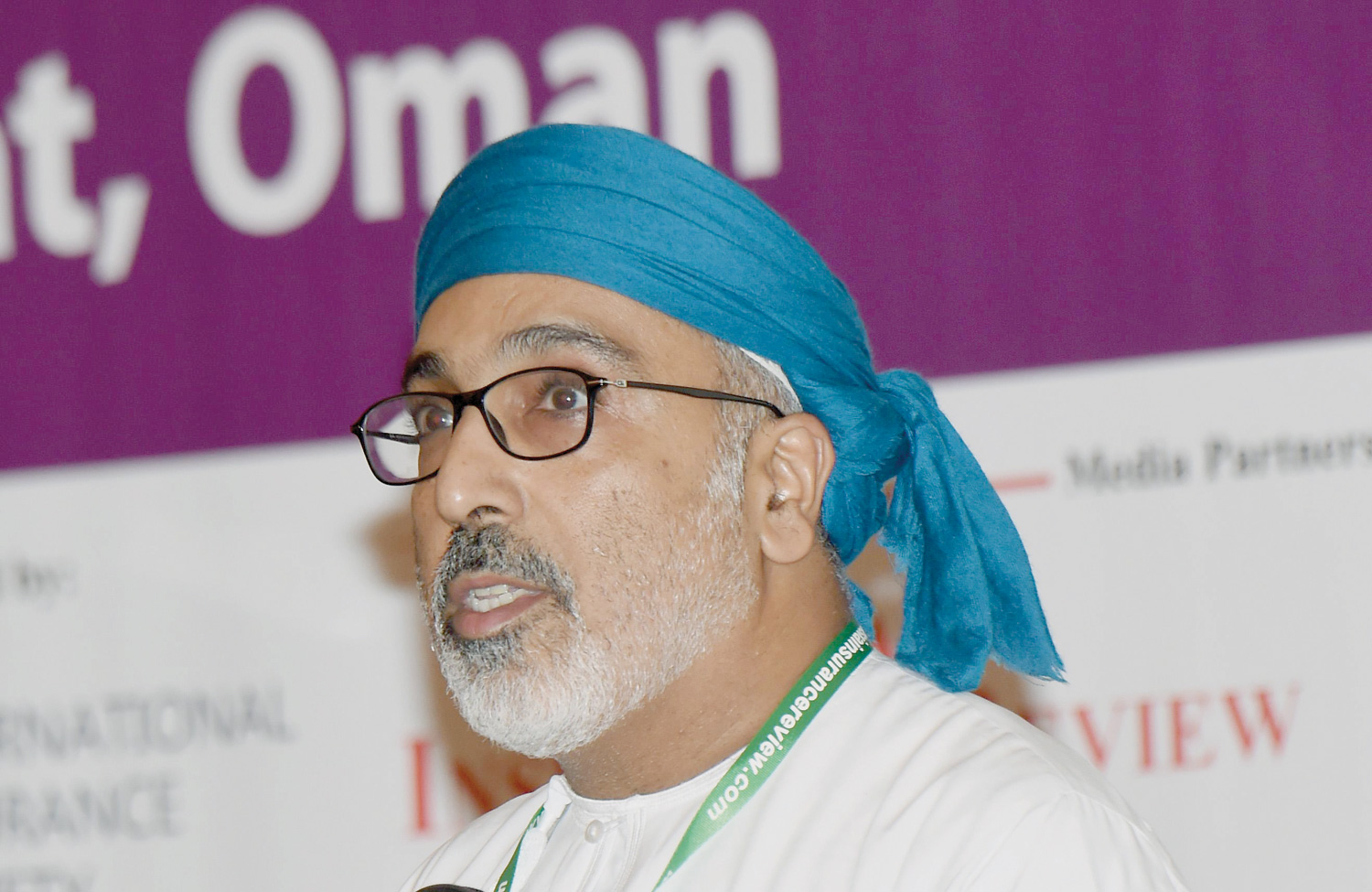

MUSCAT, SEPT 24 - Tourists and visitors to the Sultanate are among an estimated 25,000 people who will be targeted in the first stage of the Omani government’s strategy for the implementation of Mandatory Health Insurance due to kick off in the Sultanate from early next year. Also included in this initial phase will be Omani and expatriate employees of international firms and consultancies operating in the Sultanate, according to a key insurance expert at the Capital Market Authority (CMA). Ahmed al Mukhaini (pictured), Adviser at the Office of the CMA Executive President, said the ambitious scheme will be gradually rolled out in 5 or 6 stages to cover the Sultanate’s estimated two million-plus strong private sector workforce.
Speaking at the 12th Middle East Healthcare Insurance Conference, which began at the Sheraton Oman Hotel yesterday, Al Mukhaini said the roll-out has been carefully planned to avoid imposing a sudden and heavy cost burden on private firms and insurance companies.
In Stage 2, an estimated 315,000 private sector professionals across various disciplines, in addition to housemaids, will be enrolled into the Mandatory Health Insurance Scheme. This will be followed by around 371,000 workers of Excellent Grade companies operating outside the ambit of the construction sector.
Envisioned for coverage in Stage 4 are some 392,000 Omani and expatriate employees of Excellent Grade firms that are part of the Sultanate’s thriving construction sector. Targeted in Stage 5 are some 360,000 employees of First and Second Grade companies, while the balance 675,000 staff of Third and Fourth Grade companies — representing predominantly blue-collar workers — will be covered in Stage 6.
Importantly, the transition from one stage to the next will only proceed once a thorough evaluation is carried out of the mission objectives, negative impacts and other challenges posed during the implementation phase, said Al Mukhaini.
In his presentation, the expert also pointed to the skewed geographical distribution of private sector employees as well as private healthcare institutions around the Sultanate. For example, the governorates of Muscat, North and South Batinah, and North and South Sharqiyah, account for the lion’s share of private sector employees. Statistics suggest that around 1 million workers are based in the capital region alone — a potentially inaccurate representation given the likelihood that the companies per se are headquartered in Muscat, although their staff are distributed in other parts of the Sultanate, he noted.
Private hospitals are unequally distributed as well. For example, Muscat Governorate has one private hospital bed for 3,358 workers. The corresponding ratio for North Al Batinah however is 112,000 workers for one hospital bed. This imbalance can only be addressed through greater investment in private healthcare services in underserved areas, said Al Mukhaini.
Also prospective for investment is the health insurance sector, the official pointed out. Of around 20 insurance firms licensed to operate in the Sultanate, only 16 of them are licensed to provide health insurance services. Also, given a target population of 2.09 million to be covered by Mandatory Health Insurance — compared to a current coverage 242,000 Omanis and 202,000 expatriates — insurance service providers will also need to up their game through new investments in new capacity and professional staff, he added.
Conrad Prabhu
Oman Observer is now on the WhatsApp channel. Click here



